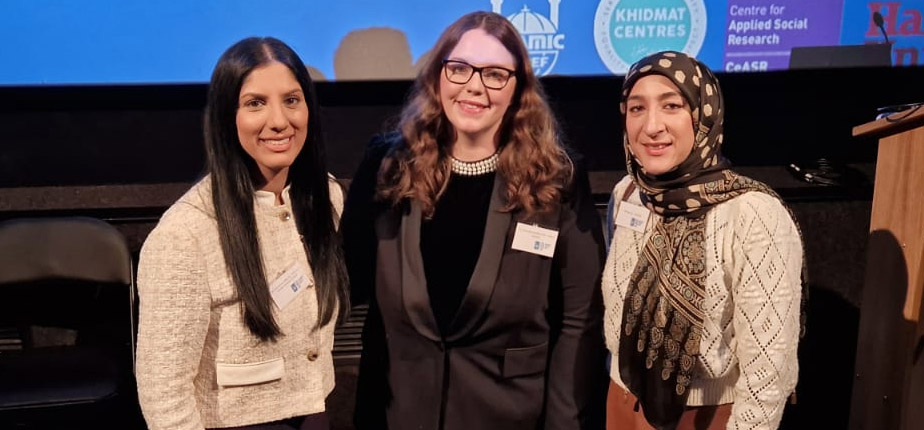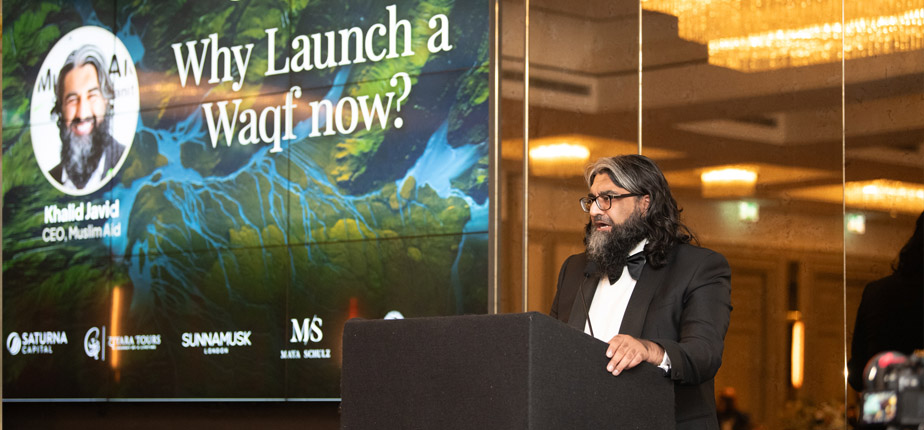
Fatima Raza Hassan
A new documentary has highlighted the often-overlooked struggles faced by Muslim women in prison, revealing systemic discrimination and cultural stigmas that compound their challenges. The premiere, ‘Inside Out – Muslim Women in Prison’, followed by a panel discussion, brought attention to a group whose voices remain largely unheard in public discourse.
Dr Sofia Buncy, a leading advocate for incarcerated Muslim women, spoke at the event, emphasizing the lack of visibility surrounding this issue. “Despite its significance, the challenges faced by Muslim women in prison often go unnoticed,” she said, calling for greater awareness and support.
The programme is run by Buncy, who describes it as a “one-stop-shop” for services such as housing and benefits support. Buncy says it is a model that has proved successful, with 70% of women having been accepted onto a course or moved into employment. In a new report, ‘Muslim Women and Desistance’ she is now calling for more support for female Muslim ex-offenders, a focus on helping women to be reunited with their families, and more diversity within the make-up of the criminal justice system.
It comes as Labour MP David Lammy, who has chaired an inquiry into the treatment of black and minority ethnic communities in the criminal justice system, says a separate inquiry should be carried out into the needs of minority women—especially those of Muslim faith—in prison.
Statistics from the Prison Reform Trust, from March 2019, show there are 226 Muslim women in UK prisons, accounting for 6% of the female prison population of 3,832 women. The Ministry of Justice said it was “shifting focus towards tailored community-based support… [and] investing £5 million in locally-led community services that benefit not only offenders but their families and the wider community.”
The documentary featured the story of Neena, a former prisoner, whose account shed light on the systemic barriers she faced. Neena described feeling “unseen and unheard” from the outset, with prison officers assuming she did not speak English. Her lack of knowledge about her rights resulted in years of separation from her children.
Neena revealed that upon her arrival in prison, she prayed on a towel, unaware that she was entitled to a prayer mat. She also faced blatant racism; when she filed a discrimination complaint, her name was pushed to the bottom of the list. Attempts to challenge her treatment were met with hostility, branding her as a “troublemaker.” This label led to her being transferred between prisons, deemed “too assertive.”
“All I wanted was to be treated with the same respect as my fellow inmates,” Neena said. Despite the obstacles, she continued to advocate for her rights, eventually receiving support from the Muslim Women in Prison Project during her final year in incarceration. The project provided her with a Ramadan pack and facilitated her relocation to Bradford, where she found a supportive community.
The trauma of her prison experience remains a burden. Neena spoke of cultural pressures from Arab and South Asian families to “forget and move on,” but for her, the scars are lasting.
A panel discussion following the screening delved deeper into these systemic issues. Panellists pointed out disparities in how prisoners are treated based on race and religion. While white inmates often receive help from officers, Muslim women must fight for basic accommodations, such as halal food.
One panellist questioned how to break through governmental inaction. “How do you move past the brick wall and get the government to listen?” they asked. The consensus was that amplifying stories like Neena’s is critical. These stories, they argued, reveal the human cost of systemic failures and can push policymakers to act.
“Politicians make decisions without understanding their impact,” one panellist noted. “Amplifying the work that has already been done is key to putting this issue on the national agenda.”
The event concluded with a call for action. Advocates stressed the need to amplify the voices of Muslim women in prison and the organizations supporting them. By raising awareness and challenging systemic injustices, they hope to ensure these women are no longer invisible in the eyes of society and the law.

